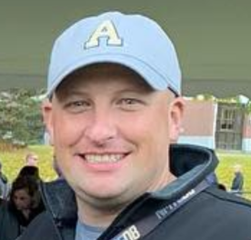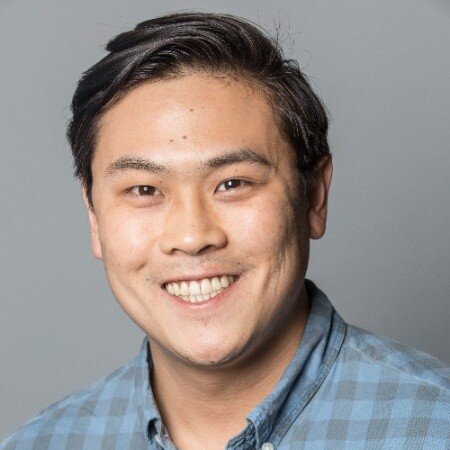
Old Grad Club Live
We bring the veteran community together monthly to have conversations with industry leaders in their field. We talk about the good, the bad, and the ugly across impactful industries.
Evan Brainerd: Managing Director, Technology Investment Banking, William Blair
There’s a huge temptation to go after big brands in banking in the same way you go after them for business schools, but I think it’s more important to find the right cultural fit. Where do you find the greatest intellectual challenge? Where do you see the most room to grow? Where do you love the team around you? That becomes vastly more important than chasing after one name or the other.
Ethan Plater: Leveraged Finance, Morgan Stanley
The first few years as an investment banker are really tough, but once you can get through the high-slope learning curve, your military background will provide a significant value-add. Things we consider basic skills – courage, leadership, initiative – will really come to fruition as you gain experience and seniority.
Mark Yurko: Managing Director, Spurrier Capital Partners
When I came out of business school in 2002, there was a very clear hierarchy between firms, with the largest banks on top. Since then, boutiques have taken much more market share, while providing employees with greater freedom and autonomy. In fact, many of the competitors we hold the greatest respect for are other boutique firms that provide laser-focused expertise.
Alex Vichinsky: Summer Associate, McKinsey & Company
For those about to start their MBA, I would recommend waiting until you begin classes to kickoff case prep. I have seen many people become burned out from case interview fatigue, so I would encourage you to trust your school's process. I waited until October to start casing and I had my final round interviews in the first week of January. If you can't sit still and feel like you need to do SOMETHING to prepare before class, I highly recommend the book "Case Interview Secrets" by Victor Chen. The book is free for veterans, so you have nothing to lose by ordering.
Charlie Lewis: Expert Associate Partner, McKinsey & Company
McKinsey is a big place, providing you opportunities to find your core group of sponsors and mentors. This allows you to identify what problems you enjoy solving and who you like to solve them with. Solving for the people plus the problem creates a great environment to work with people from a variety of backgrounds with similar passions and interests to you.
Andrew Thoma: Associate Partner, McKinsey & Company
Walking into the client site for the first time was similar to being a 2LT showing up to my unit for the first time; there was a lot of pressure to deliver, and while you have a solid background and education, you’re still unproven. People size you up and are skeptical about what value you may be able to bring. Ultimately, your success will depend on your ability to win over the client team by proving to them you are competent, can deeply understand the problem and the context, and tailor a solution that the organization can deliver.
Scott McConnell: Partner, McKinsey & Company
One of the defining elements of working at McKinsey is our long-term view; we push for client success in a larger sense rather than looking at short-term sales metrics. Building these relationships over time has been one of the most rewarding parts of my time with the firm.
Doug Doan: General Partner, Hivers and Strivers Fund
We bet on the jockey, not the horse. We look for “woodpeckers” – the people who get up at 3 AM, bang away 20,000 times a day and don’t give up. These people are relentless; their refuse-to-quit mindset is essential to what we look for in entrepreneurs.
Scott Leishman: Associate Director of Career Services, West Point AOG
We pump the hell out of networking! About 60% of the grads we work with who get their dream jobs spend significant time networking. There are a lot of people further down the road who can help – talk to grads in roles you’re interested in.
Julia Ruddock: Director of Career Services, West Point AOG
Throughout my career, most of my successes have been facilitated by a grad connection; a grad has been there for me every step of the way. We encourage every grad we work with to build a strong network and leverage each other to succeed together.
Jason Crabtree: Co-founder and CEO, QOMPLX
We built a business as a last resort – we were passionate about our mission, and we couldn’t figure out another way to meet it. Organizing around a purpose – building stuff that matters – is what compels me. For people that are thinking about building a business, make sure you love what you’re doing enough that you’re ready to fail for it.
Michael Johnson: Director, Global ISV Alliances, Microsoft
If I were to pull a consistent thread through my career, it’s been a focus on partnership. It really started when I was back in the Army, serving my “customers” as an Aviator, but it’s been a central theme that I’ve maintained throughout my career.
Jason Schaaf: Global Sales Leader, Azure Defender for IOT, Microsoft
Coming out of the Army, you might not have the [industry] domain knowledge, but you have the ability to view problems, work through them and influence people to get them on your side. Focus on weaving a story that translates those abilities in a way [civilians] can understand.
Andrew Lee: Power Platform Direct Business | Sr. Marketing Manager, Microsoft
In the startup environment, there are no guardrails, and there really isn’t anyone holding your hand and telling you how to do your job. Despite enjoying the experience, I was left wondering how the “best of the best” run a business – this eventually led me to Microsoft.
Brian Elliot: Co-founder, Faubion
I think advice for people who are thinking about starting is the only barrier to entry is yourself. You could be working on something right after this call. Anything that you think is less than ideal with significant space and is 2/3 of either better, faster, or cheaper and you’re probably going to be wrong but that’s okay. It’s more or less getting over your own self doubt which is the biggest barrier to entry for most folks.
Andrew Wolgemuth: Co-founder, Faubion
You have to be all in. I was puttering around on this idea for 6 months working on it solo while also working on it at the family business. We decided we’re either going to go all in on this or we’re not. We saw the biggest gains when we decided to go all in.
David Williams: Head of Retail Store Operations, Google
As a leader in a tech company, it’s important to provide your team guidelines, directives and intent, but still give them the space to develop creative solutions on their own. In the Army, leaders are often responsible for defining solutions; in tech, solutions often come from the team.
Larraine Palesky: UX Recruiter, Google
Do your due diligence – talk to employees at companies you’re interested in, in roles that you are actively pursuing. Ask if they have flexibility and work/life balance, if they enjoy their work, and if they’re feeling burnt out. Use the on-site interview to gauge how well the environment matches what the company projects.




















